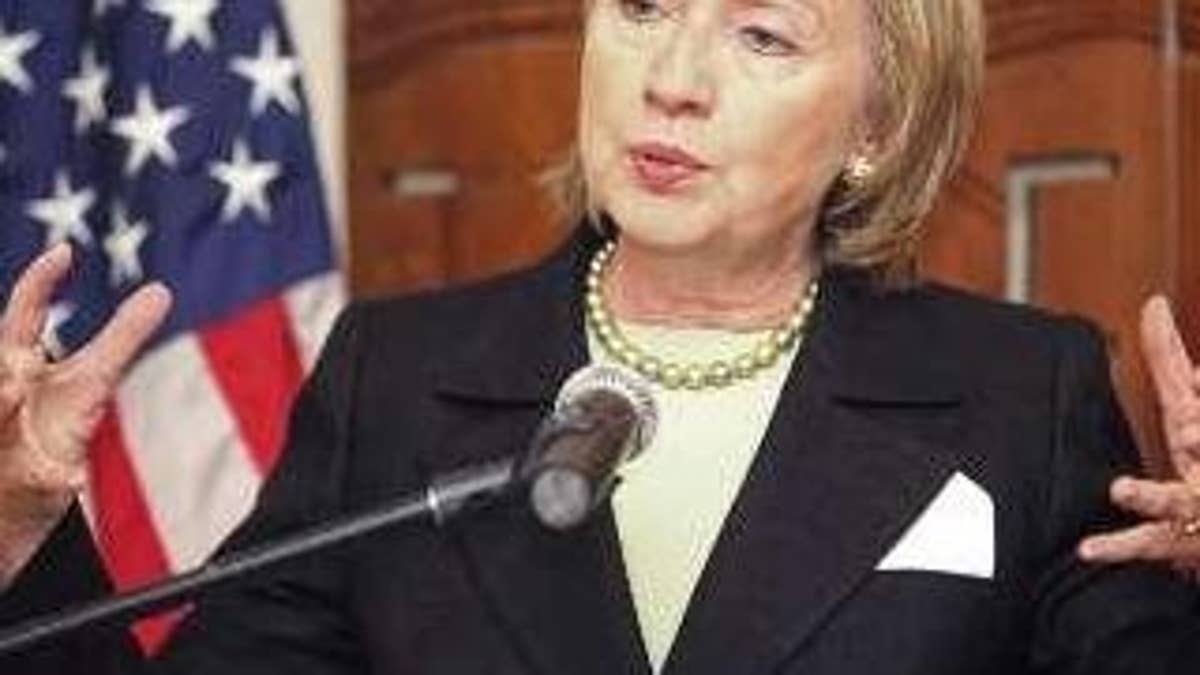
The Supreme Court will weigh First Amendment rights against campaign finance law when it holds a rare September session Wednesday to review a case that started as a dispute over an anti-Hillary Clinton movie that a conservative group wanted to air during the 2008 presidential primaries.
The politically hot case will also be the first Supreme Court case for new Justice Sonia Sotomayor.
As is customary, the high court will convene its next term on the first Monday in October, but this case originates from arguments it first heard in March, before Sotomayor was a member of the court.
The Supreme Court is now looking at whether to strike limits on campaign spending by labor unions and corporations. The justices announced in June that they wanted to hear additional arguments that reexamine a ruling that upheld a provision of the McCain-Feingold campaign finance law.
Despite the court's interest in hearing the expanded arguments, it is still possible the justices will issue a narrow decision on the case originally brought by Citizens United, which produced a documentary film highly critical of then-presidential candidate Hillary Clinton.
In January 2008, the Federal Election Commission prohibited the distribution of "Hillary: The Movie" and advertisements for the film. It based its decision on a provision of campaign finance law prohibiting the express advocacy of political candidates by outside groups.
The case raised significant questions about the law, named after Sens. John McCain, R-Ariz., and Russ Feingold, D-Wis.
For more than a century, lawmakers fearing excessive influence from corporate treasuries have banned companies from making direct political contributions. That prohibition was later extended to labor unions. In 1990, the Supreme Court upheld the basic premise of those laws ruling that election results can be illegitimately distorted without them.
During Sotomayor's confirmation hearing, Senate Democrats frequently mentioned the unusual scheduling of this case as a reason why her prompt confirmation was so critical.
The court's announcement "dramatically changes the issue in this case," said Seth Waxman, who is representing the lawmakers. Waxman contends precedents that were the foundation for the McCain-Feingold law are "vital cornerstones" and that it would be "unseemly" for the court to reverse course. Waxman said such a ruling would "threaten the court's legitimacy in the eyes of the nation."
The Obama administration is also defending the status quo. Solicitor General Elena Kagan, who has been interviewed by President Obama for the high court vacancy filled by Sotomayor, is now making her first argument in front of the court. She says overturning the precedent would "make vast sums of corporate money available for overt electioneering."
Kagan argues the government has a compelling interest to prevent the "pernicious consequences" of corporate campaign dollars. She asserts that allowing the direct contribution of campaign funds -- as opposed to the current system of separate political action committees which collect and distribute funds -- will erode the political system and inevitably lead to the corruption of public officials.
Leading the charge for the change is Ted Olson, who like Waxman is a former solicitor general, once defended the law he is now seeking to overturn. Olson says the issue is a matter of fundamental First Amendment rights to free speech. He argues that corporations and other entities, just like individuals, have the right to speak via campaign contributions. He says the court's earlier rulings upholding the campaign finance laws are counter to the protections guaranteed by the First Amendment.
"It has created an unworkable campaign finance framework that chills fundamental First Amendment freedoms, punishes core political speech with felony prosecution, and continues to generate lengthy, piecemeal litigation. It must fall," Olson said.





















